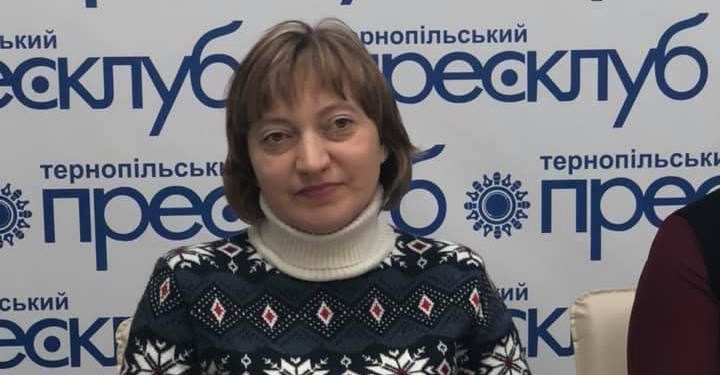Natalka Hamera, an editor from the Ternopil Region, has conducted dozens of volunteer trips to the Ukrainian military, taken many adventures, and had sleepless nights, difficulties, and worries. With the beginning of a full-scale war, she and her team published the newspaper called Holos Lanovechchyny for some time at her own expense, and when it became very difficult and had to close the publication, she plunged headlong into volunteering. But even during volunteer trips to hot spots, she remained a journalist.
“She wore a cast for two months. But I didn’t quit my work even despite taking painkillers”
“I have a dream to publish, not even a book, but at least a brochure about volunteer trips, a kind of memoir of a volunteer. I hope that when the war is over, we will definitely find funding to publish the memoirs. I communicate with different people every day: both at the front, in de-occupied cities, and with displaced persons. We have women in Ternopil who came, and their husbands were at the front, some women came to stay with their relatives, and their husbands stayed to work. Some people left their occupations, some people were left homeless. The world should know their stories,” says Hamera.
In the first days of the full-scale war, the relatives practically did not see Natalka at home. She stopped by occasionally except to spend the night. A backpack with the necessary things, water, a notebook, and a pen, and the volunteer journalist is ready for another expedition.
But somehow an accident happened to her…
“On Thursday, I was preparing for the trip, because on Saturday we were supposed to go to Avdiyivka,” the journalist says. “I went to the bank, and there were such steep stairs there… I fell and broke my arm. A compound fracture. I was in a cast for two months. But I didn’t stop working, I even came for painkillers. Because I had logistical work: I communicated with the boys and asked what they needed. There was such a case when the cast was removed, but the hand had not yet healed, and I had to go to Kharkiv, to the hospital. My son-in-law set conditions for me – my daughter was pregnant – so that I do not go anywhere. Otherwise, she would get worried, otherwise, he would stop donating to me for the AFU. But I didn’t listen and went anyway. But she had a conversation at home… and then she recovered and volunteered again.”

“In 2015, I have already started going to the front line where our compatriots were serving”
In fact, “life on the road” has dragged the volunteer journalist since 2015. She wanted to see everything with her own eyes, to feel and pass through herself the pain spread over the East of Ukraine at that time.
“Then I realized how serious everything was. I realized the difference between the rear and the front. That’s why I wanted to go, see what was happening, and communicate with different people. And since 2015, I have already started going to the front line where our compatriots were serving.”
After each trip, the journalist sat down to write materials. She arranged photos of the military, which she later handed over to their families. Because she already knew who served where and how. However, when a full-scale invasion occurred, Natalka was at a loss.
“We did not know where to attract help from. Then we started going to Kyiv, which was under shelling, where people simply lived in the subway. Today, the war that has been going on since 2014 is no longer the same. Now everything is different, and I don’t want to expose even the soldiers themselves to danger once more. Therefore, they also tell us what is needed now and what is not in time. We communicate with the majority by phone. That’s why we came, unloaded the car at position one, two, three and we’re going back,” says the volunteer journalist.
Now the situation has more or less stabilized, and there is a logistical understanding for volunteers “where to go and what to do. So now, Natalka wants to find time and resources to resume publishing Holos Lanovechchyny.

“There is no funding and subscription everyone has moved onto social networks”
“Volunteering takes time, but we still need to leave a word about these events,” Natalia Hamera sums up the conversation. “I make a distinction: philanthropy and the Armed Forces are one thing, and the work of the newspaper editorial office is another, those two things go parallelly. Although both are important to me. I have never asked anyone for anything for myself, and for the editors, the circumstances have somehow developed that I have not yet asked for help. There is no funding and no subscription everyone moved onto social networks, although now we understand: it was better when we had a newspaper. But it is not so easy to restore it.


 THE NATIONAL UNION OF
JOURNALISTS OF UKRAINE
THE NATIONAL UNION OF
JOURNALISTS OF UKRAINE
















Discussion about this post